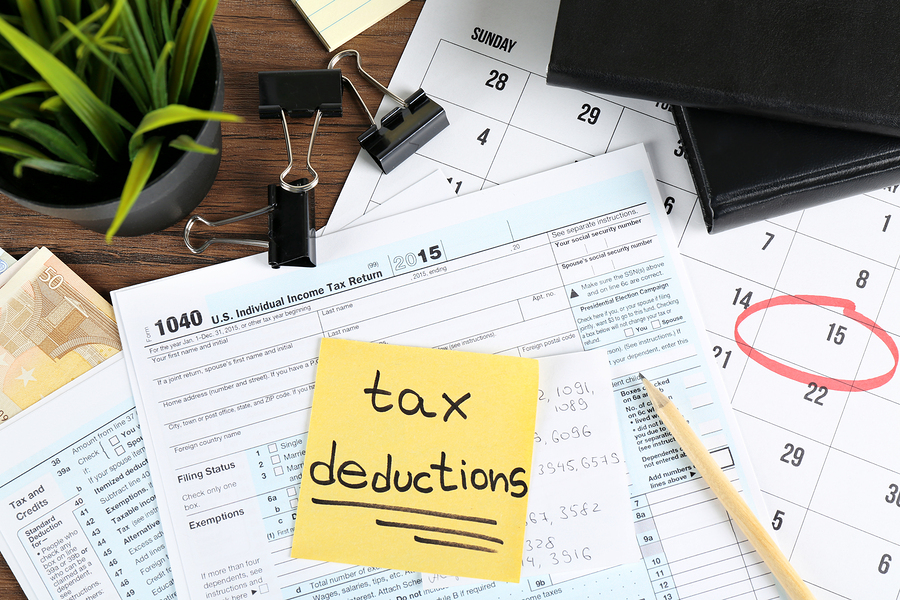Do You Pay Taxes on a Car Accident Settlement?

Find out the maximum compensation you could receive.
Car crashes are uniquely stressful. When a person is struck by a driver who was texting while driving, or by a motorist who runs a red light, their entire world can be thrown for a loop. Victims are rushed to the emergency room with their life turned upside. Even after they check out of the hospital, their minds are often swimming with questions about their health, their legal rights and their insurance policy.
The last thing on the minds of most accident victims are taxes — though perhaps they should be. Tax confusion can add a layer of uncertainty to what is normally a straightforward car accident settlement. If you’ve received a settlement payout after a car accident, you probably want to know if you’re required to pay taxes on that money. In most cases, the answer is no. But this is not a hard and fast rule, and the exact answer depends on the circumstances of the case. Keep in mind that while the guidelines below are generally accurate, only your tax advisor can give you tax advice.
The first thing to know is that car accident settlements and judgments are usually viewed the same way when it comes to taxes. So it does not matter whether the money you are receiving is coming through a legal judgment or an out of court settlement. The tax implications are the same.
When a victim is awarded compensation after a car wreck, it is generally not taxed. Neither is the car accident claim money paid out by the insurance company traditionally taxable. Blanket statements about taxes, though, never paint the full picture. While car, truck, and motorcycle accident settlements are not usually taxed, portions of the compensation may indeed be taxable. When money is on the line, though, it is important to keep Uncle Sam and his purse strings in mind. In some instances you may even be able to deduct certain expenses from the taxable portion of your car accident settlement.
Are Compensatory Damages Taxed In Car Accident Settlements?
The money that you receive for medical expenses and injuries are known as compensatory damages or general damages. These damages are intended to pay you for medical costs, lost wages, and pain and suffering. Most of that money will not be subject to state or federal taxes.
Money that you receive for vehicle and property damage also is not taxable as income. This is also true for costs of repairs that were paid, as well as reimbursement you might have gotten for a rental car while your car was being repaired.

Tax Exemptions for Lost Income and Punitive Damages
While income taxes are not usually owed after settling a car accident claim there are some exceptions to the rule. It all depends on how the settlement is structured. Lump sum amounts are not taxed, but if money is awarded specifically to make up for lost wages, taxes will be owed. Wages are taxable, therefore lost wage settlements are also taxable. Because the settlement is replacing taxable income, the government will expect the usual taxes to be taken out accordingly. Social security and Medicare payments will also need paid out from lost income settlements.
When a small business owner loses an opportunity because of an accident, they can be compensated for this financial loss via a settlement. This compensation for future loss of income or business can be included in the car or semi truck accident settlement, but since that income would have been taxed if they had worked for it, this part of the car accident settlement is usually taxable.
In some states, punitive damages are taxable. Awarded to accident victims involved in wrecks caused by especially reckless drivers, punitive damages serve as additional punishment for the at-fault driver. The U.S. tax code requires those who receive punitive damages to pay taxes on the settlement. In the eyes of the IRS, punitive damages are income. This type of damages is usually designed to punish the defendant and to discourage bad behavior in the future. Punitive damages only are awarded in unusual circumstances where the liable driver engaged in particularly reckless behavior. If you do receive punitive damages, that money is almost always taxable.
Do You Have to Pay Taxes on Pain & Suffering in Car Accident Settlements
When a car accident victim is awarded compensation for their pain and suffering, the money is generally non-taxable. If that pain and suffering is classified as emotional rather than physical, though, victims will owe taxes. For example, if a person walked away from an accident with no physical injuries, but experienced post-traumatic stress disorder after a car accident, they are required to pay taxes on any compensation they receive for their emotional trauma.
The IRS regulation that deals with settlement and judgment taxation is found at 26 CFR 1. It states that damages that are received because of personal physical injuries or physical sickness are excluded from federal taxation. However, you should know that ‘emotional distress’ is not a physical injury and money received for it can be taxed, UNLESS it is directly related to a physical injury.
However, if a person injures their spinal cord in a car accident and becomes paralyzed, they may develop depression because of their injury. In this scenario, the damages awarded for emotional distress is not taxable because it stems from physical injury. The line between emotional and physical pain can be blurred, so victims should speak to their attorney and accountant about taxes on such compensation.
Do You Pay Taxes on Compensation for Damage to My Car or a Rental Car?
Money that you receive for vehicle and property damage also is not taxable as income. This is also true for costs of repairs that were paid, as well as reimbursement you might have gotten for a rental car while your car was being repaired. Since this is money that’s going to replace lost property, it won’t be spent elsewhere or invested, like most income would be. Therefore you shouldn’t have to pay taxes on the car accident settlement for your property damages.
Car Accident Settlements and Tax Brackets
Taxes become all the more confusing when a car accident settlement lands a person in a new tax bracket. Settlements can be hefty and sometimes include years of lost wages that can double or triple a person’s income for the year. While normally this would be worth celebrating, the realization that more taxes will likely be owed because of the auto accident settlement can cast a long shadow. On top of income tax, a person awarded compensation for lost wages will also owe payments for Social Security and Medicare.
After factoring in lawyer fees, many find themselves walking away with less than half of what was awarded in the settlement. While itemizing deductions can help soften the financial blow, the overall effect can be frustrating. Those concerned about how tax brackets could impact their bottom line should speak with their attorney and their accountant for guidance.
Personal Injury Lawyers Can Help, But Can’t Replace a Tax Pro
State laws surrounding car accident claims and settlements can vary dramatically. Tax law, too, can differ based on where a person lives. For many accident victims, the uncertainty can feel overwhelming. While it is tempting to wash one’s hands of the confusion and worry about it come tax time, getting answers to the big questions can provide a person real relief. It’s also helpful to remember that most personal injury attorneys are not tax law experts. If you have complex questions about the tax implications of your car accident settlement or when you should pay tax on a car accident settlement payout, you should talk to your tax advisor.
Find out the maximum compensation you could receive.
Joseph Pickett writes primarily about the intersection of injury law and personal finance. An experienced writer with over 15 years of experience writing about personal injury law and car accident settlements, as well as personal finance for a variety of publications.


